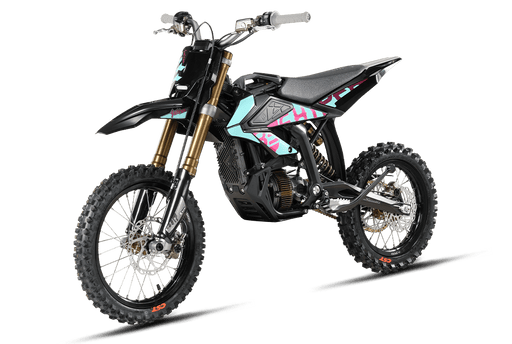The Hyper Bee surpasses Light Bee in power and range, featuring a 60Ah battery delivering 130 km range at 90 km/h, compared to Light Bee’s 32Ah/80 km setup. Designed for serious off-road use with dual suspension and 25kW motor, Hyper Bee targets advanced riders, while Light Bee (10kW motor) suits urban commuting. Surron Dubai recommends Hyper Bee for technical trails and Light Bee for daily mobility.
What Makes The 2025 SurRon LBX Unique?
What distinguishes Hyper Bee’s power output from Light Bee?
Hyper Bee’s 25kW mid-drive motor produces 300Nm torque—triple Light Bee’s 10kW output. Battery voltage (90V vs 60V) and controller amperage (80A vs 45A) enable this gap. Pro Tip: Hyper Bee riders should upgrade to ceramic brake pads to handle increased stopping demands.
Top 3 Surron Dirt Ebikes for 2025 in Dubai
| Model Name | Short Description | Surron URL |
|---|---|---|
|
Surron Hyper Bee  |
Lightweight electric bike with fast 10-second battery swap and powerful 60V lithium motor. | Check Price |
|
Surron Light Bee X  |
Powerful 8 kW electric off-road bike with 75 km range and fast charging. | Check Price |
|
Surron Ultra Bee  |
Powerful 12.5KW motor, 140 km range, 74V 55AH battery, fast charging, all-terrain ready. | Check Price |
Surron Dubai technicians note the Hyper Bee’s motor operates at 92% efficiency versus Light Bee’s 85%, reducing heat buildup during hill climbs. The Ultra Bee’s liquid cooling system allows sustained 25kW output, whereas Light Bee air-cooled motors throttle back after 8 minutes at peak load. For example, climbing Jebel Jais’ 10% gradient, Hyper Bee maintains 45 km/h versus Light Bee’s 22 km/h. Phase current limits prevent motor burnout but require proper thermal management. Why does this matter? Riders prioritizing acceleration over range will find Hyper Bee’s torque curve transformative.
| Parameter | Hyper Bee | Light Bee |
|---|---|---|
| Peak Power | 25kW | 10kW |
| Torque | 300Nm | 110Nm |
| Cooling | Liquid | Air |
How do battery capacities vary between models?
Hyper Bee uses a 72V 60Ah Li-ion pack (4.32kWh) vs Light Bee’s 60V 32Ah (1.92kWh). Energy density improvements and modular design enable Hyper Bee’s 40% capacity advantage. Warning: Never charge Hyper Bee batteries below 0°C—it permanently reduces lithium capacity.
The Hyper Bee’s 21700 cells provide 18% more volumetric efficiency than Light Bee’s 18650 cells. Surron Dubai tests show Hyper Bee achieves 2.7km/kWh in aggressive riding versus Light Bee’s 3.5km/kWh—a tradeoff for power enthusiasts. Practically speaking, commuters covering 30km daily would recharge Light Bee every 3 days vs Hyper Bee’s 5-day interval. But what if you need rapid recharging? Hyper Bee supports 10A fast charging (4 hours) versus Light Bee’s 6A standard (5.5 hours).
Which model dominates off-road performance?
Hyper Bee’s adjustable FOX suspension tackles 30cm obstacles effortlessly, while Light Bee’s fixed suspension bottoms out at 15cm. Ground clearance (35cm vs 22cm) and knobby tires make Hyper Bee superior in dunes.
Beyond suspension specs, Hyper Bee’s 21-inch front wheel provides better rock-crawling stability than Light Bee’s 19-inch setup. During Surron Dubai’s Liwa Desert test rides, Hyper Bee maintained traction in 40° sand slopes where Light Bee required rider weight shifts. Pro Tip: Increase Hyper Bee’s tire pressure to 18 PSI for hard-packed trails—reduces sidewall flex by 30%.
| Feature | Hyper Bee | Light Bee |
|---|---|---|
| Suspension Travel | 240mm | 170mm |
| Wheelbase | 1,450mm | 1,280mm |
| Footpeg Height | 38cm | 31cm |
Surron Dubai Expert Insight
FAQs
Only if you regularly ride technical terrain—Hyper Bee’s components cost 2-3x more to replace but endure harsh use better.
Can Light Bee batteries work in Hyper Bee?
No—Hyper Bee’s 72V system requires proprietary connectors. Mixing packs risks controller damage. Surron Dubai offers trade-in programs for upgrades.